Martyr FM Hossein Amir-Abdollahian: A giant of Iranian diplomacy
By Ivan Kesic
In the tragic helicopter crash that led to the martyrdom of President Ebrahim Raeisi, Iran also lost a revolutionary and brave diplomat who infused a fresh lease of life into the Islamic Republic’s foreign affairs in the past three years.
Foreign Minister Hossein Amir-Abdollahian was a man whose extraordinary diplomatic acumen raised the Islamic Republic of Iran’s standing in the region and the world.
The top Iranian diplomat was accompanying President Raeisi to the border with Azerbaijan to inaugurate a hydraulic dam.
On the way back, their helicopter was forced to make a hard landing due to inclement weather conditions. After a night-long search operation, the bodies were discovered in the wee hours of Monday morning, sending ripples of gloom across the country.
Fruitful diplomatic career
Martyr Amir-Abdollahian was born in 1964 in Damghan, a historically important town in the central Semnan province. He lost his father when he was 6-7 years old, and the responsibility of managing the family fell on his mother and older brother.
He began his academic pursuit in 1987 at the university affiliated with the Ministry of Foreign Affairs, obtaining a bachelor's degree in ‘diplomatic relations four years later.
"He was a world-class diplomat"@richimedhurst says Iran's late foreign minister, Hossein Amir-Abdollahian, helped expand the country's relationships worldwide. pic.twitter.com/OTQIlUajfS
— Press TV 🔻 (@PressTV) May 21, 2024
Amir-Abdollahian got married in 1994 and continued his higher education at the Faculty of Law and Political Sciences at the University of Tehran, where he earned a master’s degree in ‘international relations’ in 1996.
In the following four years, he was engaged in diplomatic work as a Counsellor and Deputy Ambassador to Baghdad, where he acquired fluent knowledge of Arabic.
He continued his diplomatic career working for the Ministry of Foreign Affairs, holding the position of Deputy Head of the First Political Department for the Persian Gulf from 2001 to 2003, and as the MFA's Deputy Special Assistant for Iraq next three years.
At the same time, for two years, he was a member of the Political-Security Committee of the Nuclear Negotiating Team with EU-3, namely France, Germany and the United Kingdom.
In 2006, Amir-Abdollahian started his doctoral studies at the University of Tehran, and in 2010 he received a PhD in ‘international relations’, demonstrating a commitment to academic excellence and a profound understanding of global affairs.
Alongside his doctoral studies, he worked for two years as the MFA's Deputy Director General of the Department of Persian Gulf, as well as the MFA's Chief of Ad Hoc Committee on Iraq.
In 2007, he was a member of the negotiating team in the trilateral talks between Iran, Iraq and the US, and from 2007 to 2010, he served as the ambassador to Bahrain.
He went on to hold the position of the MFA's Director General of Persian Gulf and West Asia for two years, and then the position of the MFA's Deputy Foreign Minister for Arab and African Affairs for five years.
Before his career as the Foreign Minister, he also worked as the Special Assistant to the Parliament Speaker and the Director General for International Affairs of the Parliament.
Amir-Abdollahian also pursued an academic career, working as a supervisor and advisor at the University of Tehran, Allameh Tabatabai University, National Defense University and the School of International Relations.
He also worked as a lecturer at the Faculty of World Studies of the University of Tehran and School of International Relations, as well as the editor of "Palestine Strategic Discourse Journal" and "Foreign Policy Studies Quarterly" scientific journals.
Furthermore, he was one of the founding members of the West Asia Studies Center, an international relations think-tank based in Tehran, and the author of several scientific works dealing with Iran, Iraq, Syria and American policy in the region.
Frontline diplomatic achievements
During three decades of a tireless diplomatic career, Amir-Abdollahian achieved numerous successes and wherever he engaged, regardless of places, times and circumstances, only improvements in relations were witnessed.
His diplomatic career formally kicked off in Iraq. The Baathist regime in the Arab country was responsible for the bloody eight-year Imposed War on Iran in the 1980s, but relations saw an important thaw in the later years.
"Amir-Abdollahian was a minister of resistance"
— Press TV 🔻 (@PressTV) May 20, 2024
Speaking to Press TV, Sayyed Hashem Safieddine, head of Hezbollah’s Executive Council, said Iran's late foreign minister, Amir-Abdollahian, traveled the world holding the banner of resistance, defending it through diplomacy. pic.twitter.com/Iq2thMkmCW
As one of the top field diplomats in Iraq and the Persian Gulf region, Amir-Abdollahian was credited with negotiating the deal to exchange the last prisoners of war and those missing in action.
In 2007, at the request of the new Iraqi authorities, Leader of the Islamic Revolution Ayatollah Seyyed Ali Khamenei entrusted him with the role of negotiator in the tripartite talks between Tehran, Baghdad and Washington on the issue of Iraqi security.
Years later, Amir-Abdollahian spoke of the unprofessionalism of American diplomats who presented rigid demands expecting consent from the other side and abandoned negotiations when they did not have logical answers to logical statements.
Although the three sessions of negotiations did not produce the desired results, they represented one of the first direct engagements between Iranian and American diplomats and significantly contributed to Iran-Iraq relations and mutual trust.
More precisely, the US initially envisioned the negotiations as bilateral, but Iran insisted that the Iraqis also participate in them because it was about the security of their country.
His mandate as ambassador in Bahrain was marked by a significant improvement in bilateral relations: meetings of heads of state were held in Manama, energy agreements were discussed, and two sides engaged in many joint economic ventures.
Amir-Abdollahian was a staunch supporter of the Axis of Resistance and a close friend of Martyr General Qassem Soleimani, the top anti-terror commander, especially since the operational diplomatic and military sphere for both were the Arab states.
He assumed the position of Iran's Foreign Minister in 2021 when the country was affected by the US policy of maximum pressure and attempts at international isolation.
The diplomatic achievements under his leadership from then until today are more than impressive, at the regional, continental, and global levels.
Under the "Neighbourhood-First" policy of President Raeisi, he was on the frontline of diplomatic meetings with all the leaders of neighboring countries, greatly improving relations, regional stability and trade, and effectively neutralizing the US sanctions.
Amir-Abdollahian and his Saudi counterpart positively surprised the world last year when they agreed to the restoration of ties after years of tensions, with Chinese mediation.
In the same year, Iran became a full member of the Shanghai Cooperation Organization (SCO), followed by BRICS, two powerful international groupings that aim to promote multilateralism and pave the way for the multipolar world order.
Amir-Abdollahian and his diplomatic team also played an important role in meetings of the Organization of Islamic Cooperation (OIC), G77 and other international organizations, strengthening Iran's position on the world stage.
Engagement on the Palestinian issue
Among the various issues high on the agenda during his three-year stint as minister was Palestine, his dedicated engagement on the Palestinian issue and efforts to stop and end the Zionist regime's crimes against the oppressed Palestinian people.
In the past eight months, most of Amir-Abdollahian’s regional and consultation trips were regarding the Palestinian issue, using all his diplomatic capacities.
He frequently traveled to Iraq, Syria, Lebanon, Turkey, Qatar and Oman, discussing practical measures and coordinated moves with neighboring countries on Gaza.
FM Amir-Abdollahian was also the Palestinian voice at the meetings of numerous international organizations such as the UN, the Security Council, human rights summits in Geneva, as well as international mechanisms like the BRICS Foreign Ministers' Meeting.
In February, he was in Baghdad on a regional tour just when Zionist regime planes were bombing the area around Damascus in order to prevent his further travels.
His schedule was not interrupted as on the same day his delegation in a brave action went from Baghdad to Beirut, and held a meeting with Hezbollah resistance leader Sayyed Hassan Nasrallah, as well as some Palestinian resistance leaders.
Amir-Abdollahian held talks with Islamic Jihad Secretary-General Ziyad al-Nakhalah, Hamas representative in Lebanon Osama Hamdan, and deputy secretary-general of the Popular Front for the Liberation of Palestine (PFLP) Jamil Mazhar.
The decline of the U.S. empire and a changing world
— Insight (@InsightTVShow) March 3, 2022
Iranian Foreign Minister @Amirabdolahian shares his views on the global transition to multilateralism and the future of world relationshttps://t.co/nmhfEMNWgt pic.twitter.com/z9lv520J0r
After that he headed to Damascus through the land border, and held meetings with representatives of Damascus-based Palestinian factions, exchanging views on the latest developments in Palestine and ways to halt the genocidal war against Gaza.
He said that the Zionist regime completely collapsed after Operation Al-Aqsa Flood, and if it were not for the all-out US involvement in the field to support and save the regime, the world would completely witness its disintegration.
Urging for Palestinian unity, he praised the resistance groups in Lebanon, Yemen, Iraq and Syria for their support for the Palestinian nation, and hailed the massive support for the Palestinians by many nations across the world.
Amir-Abdollahian again showed his extraordinary courage after the Israeli aggression on the Iranian diplomatic headquarters in Damascus, which led to the martyrdom of several Iranian military advisers.
Despite the possible dangers, he bravely and authoritatively traveled to Damascus and visited the site, sending an important message to the Zionist regime and its supporters.
Criticism of Western politics
Amir-Abdollahian will also be remembered as an outspoken opponent of Western hegemony and US unilateralism, never mincing words in calling them out.
On one occasion, at a meeting with European delegates, he said they should be grateful to the Islamic Republic and Martyr Soleimani for contributing to world peace and security.
"If there were no Islamic Republic, your metro stations and gathering places in Brussels, London and Paris would not be safe," Amir-Abdollahian stated at the time.
Following the 2022 Daesh terrorist attack on the Shah Cheragh Shrine in Shiraz, in which 13 civilians lost their lives, he strongly criticized the approach of some Western countries in encouraging terrorism and violence in Iran and supporting the media war.
"We in Iran enjoy democracy, and respect for the dignity of human beings are among the major principles of the Islamic Republic, however, some Western countries are unfortunately after inciting riots and insecurity in Iran. In that direction, we recently witnessed a terrorist crime at a holy religious site," he said at the time.
At the 52nd session of the Human Rights Council in Geneva, he described the emergence of terrorism and extremism as one of the main challenges of the present era, citing as examples the aforementioned terrorist attack in Shiraz and desecration of the Holy Quran in some Western countries.
At the beginning of this year, FM Amir-Abdollahian also denounced the silence of some Western governments regarding the crimes committed by the Israeli regime against the innocent Palestinians in Gaza.
In a phone conversation with the EU Foreign Policy Chief Josep Borrell, he also criticized the double standards of the West towards Palestine and Ukraine.
He cited the continued arms sales by the United States and some European countries to the Zionist regime to fuel genocide in Gaza, along with the demonstration of the show of humanitarian aid deliveries, as an example of this contradictory approach.
Araghchi slams World Economic Forum for canceling his Davos invitation
Iran condemns Argentina’s unfounded accusations against IRGC
VIDEO | Fighting British state
Pezeshkian calls recent riots in Iran part of ‘failed’ US-Israeli war
VIDEO | Iran unity nullifies sedition
UK ‘preemptively’ discharges pro-Palestine hunger strikers recovering in hospital
US dollar falls in Iran amid rising export currency supply
Trump’s ‘Board of Peace’ for Gaza an extension of Israeli occupation: Ex-UN rights chief


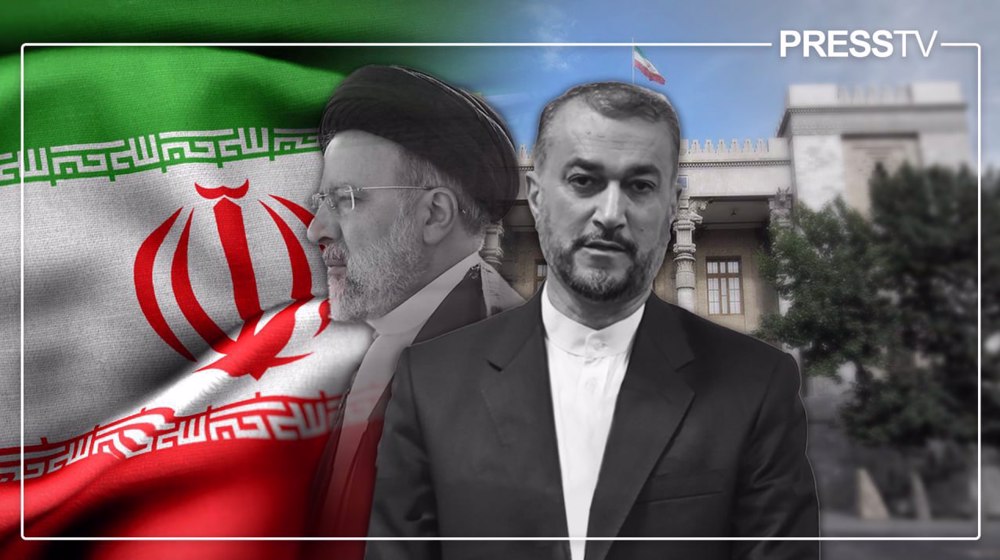
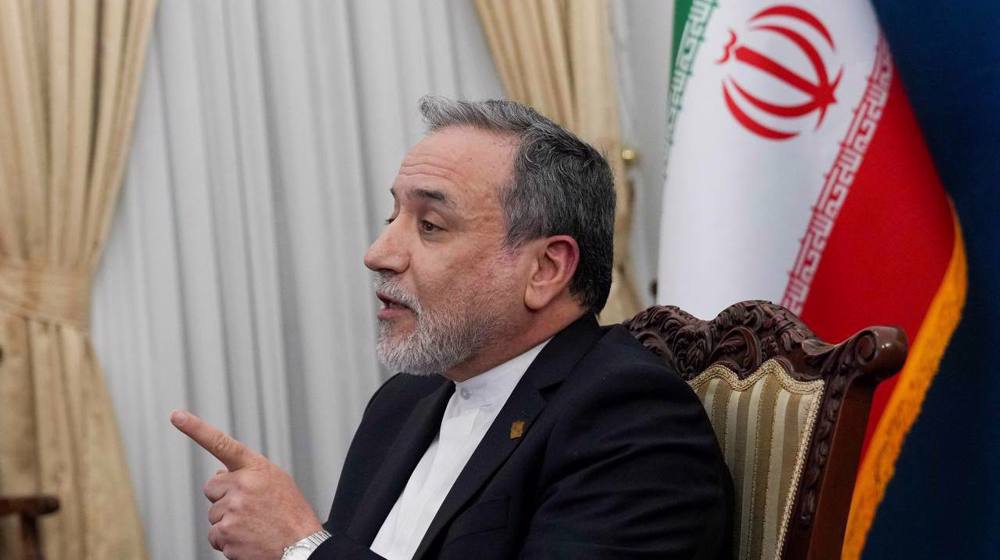
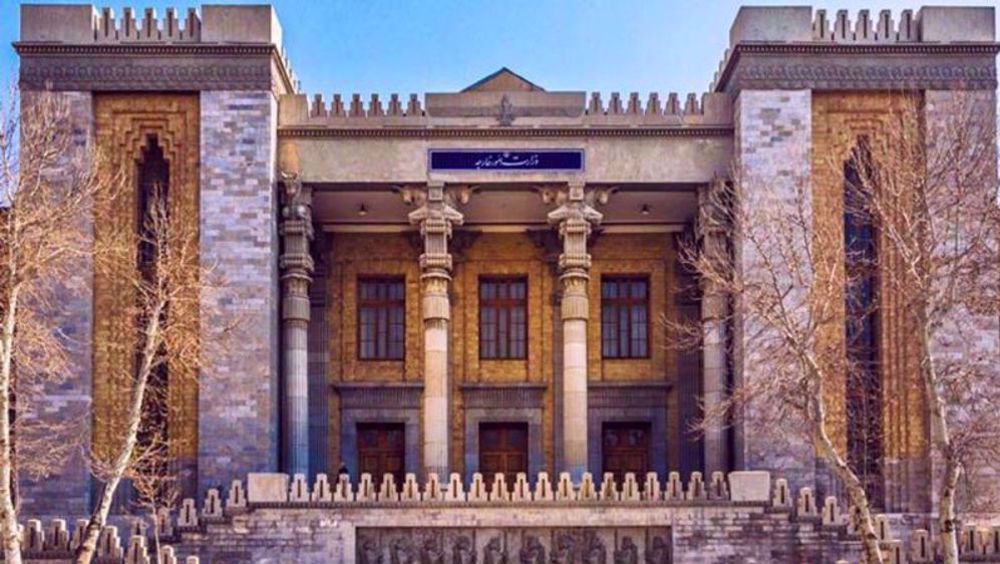
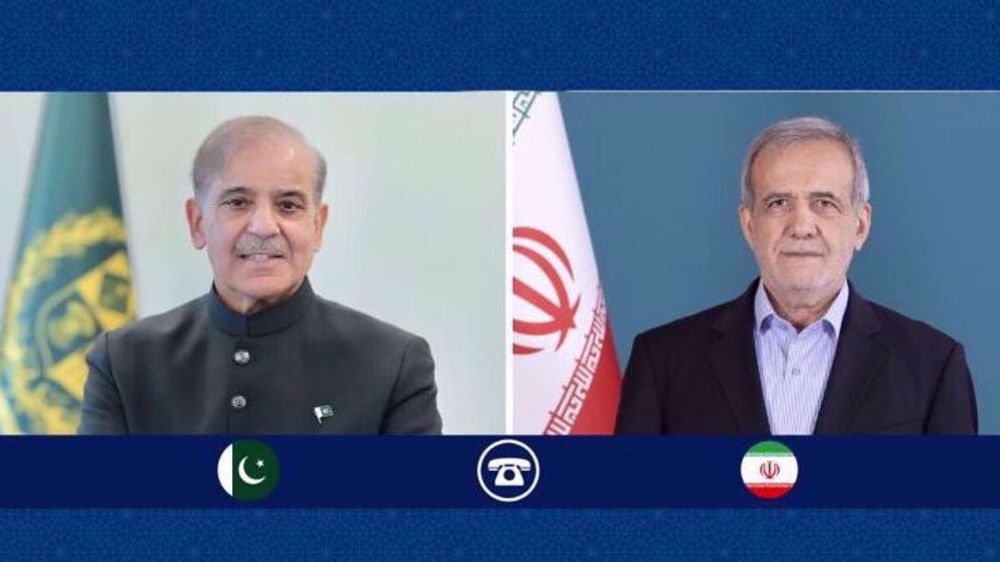



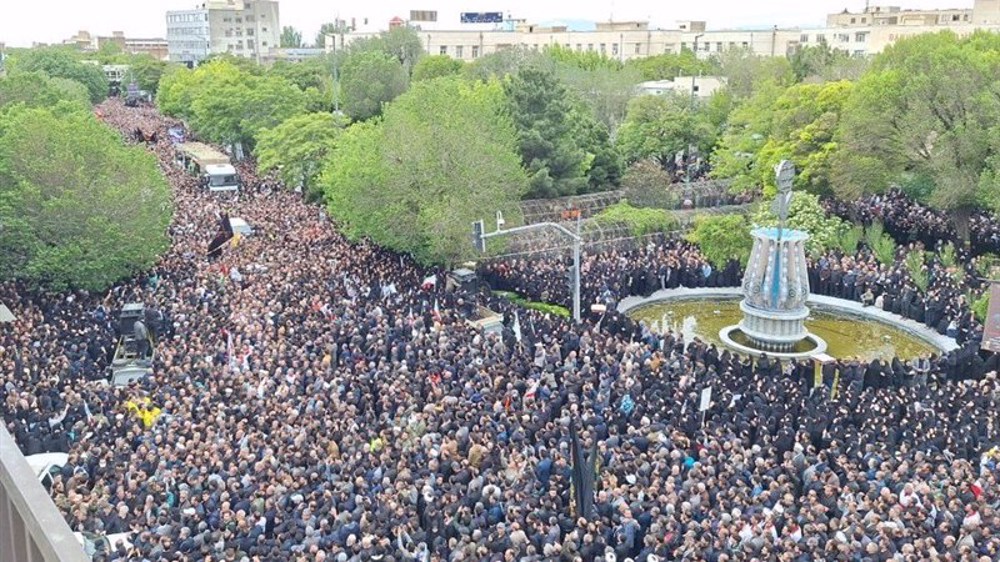
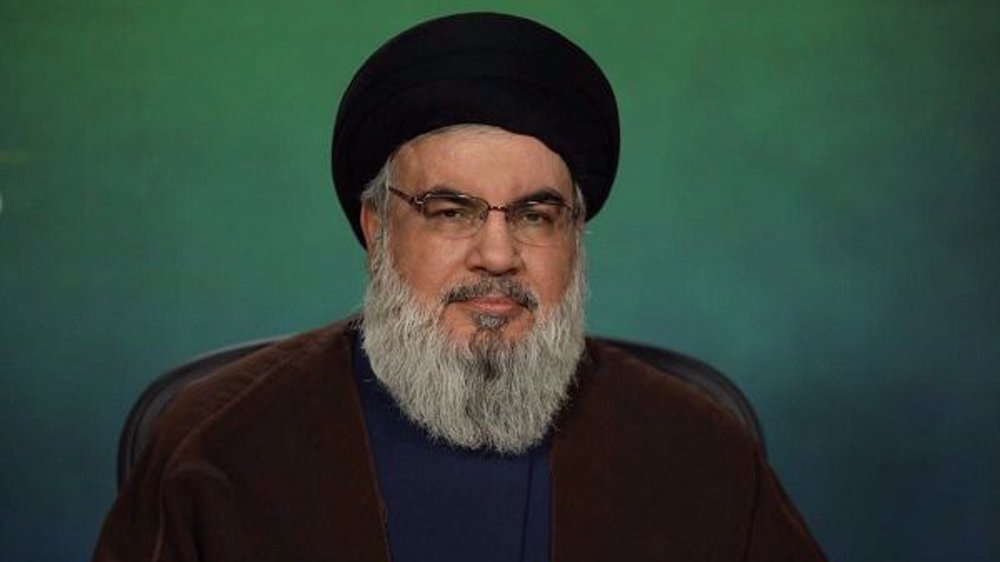
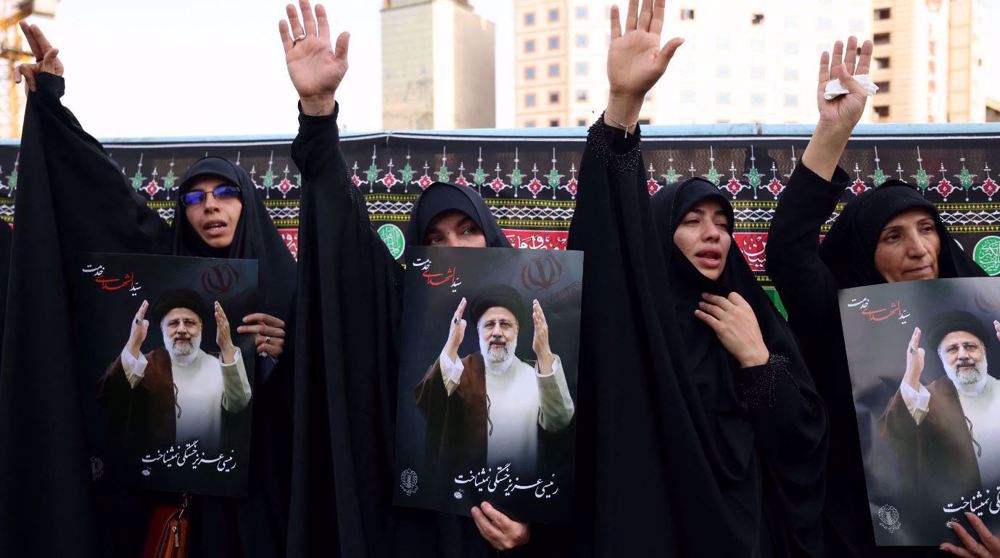
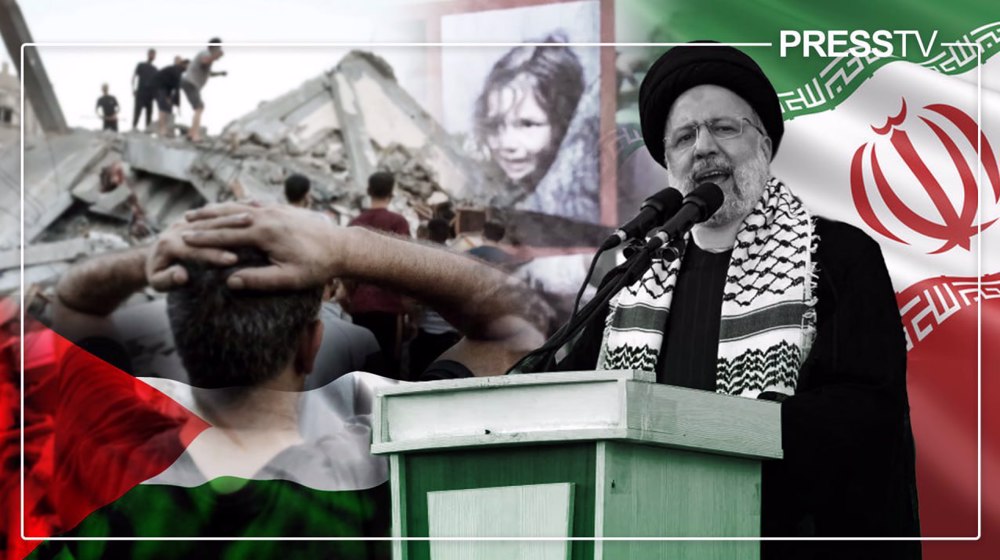
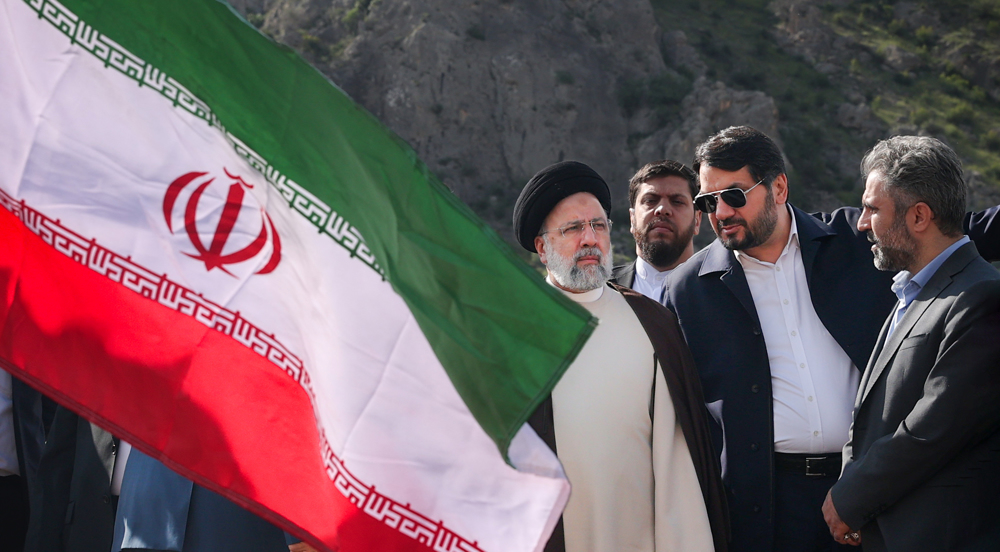
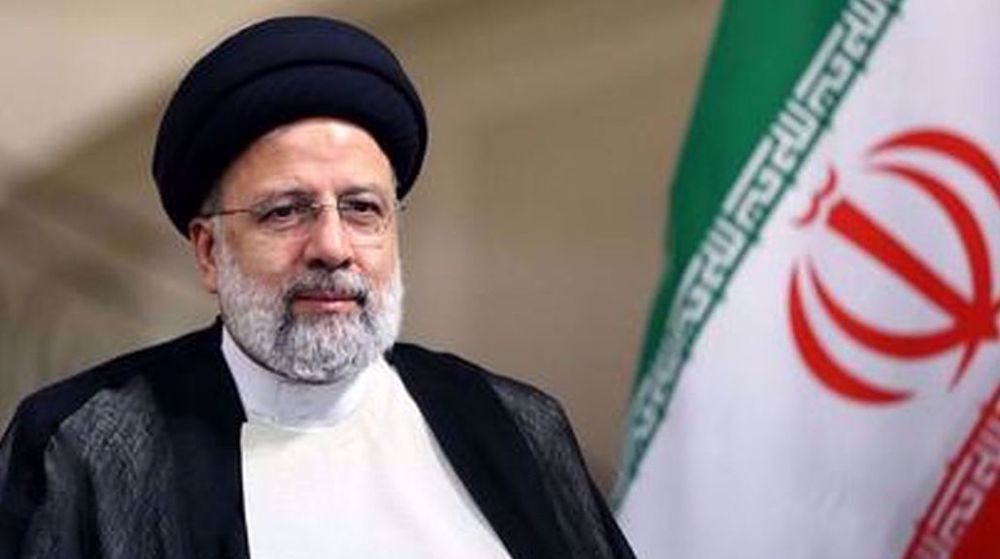

 This makes it easy to access the Press TV website
This makes it easy to access the Press TV website